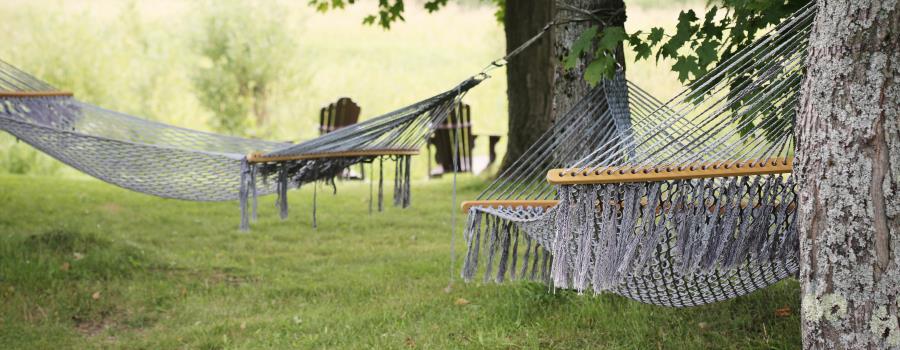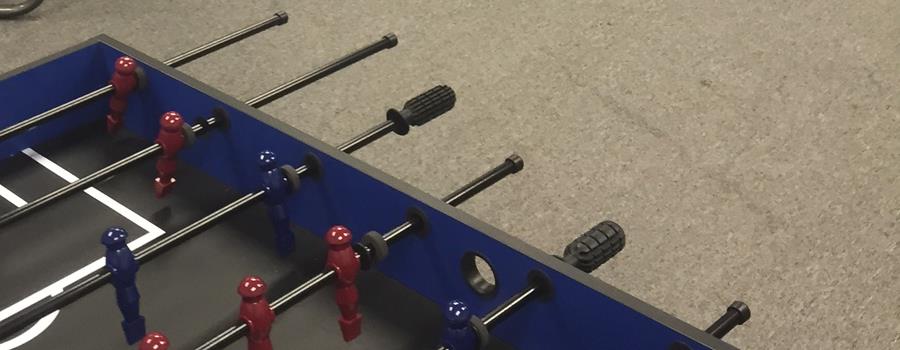
Cognitive Behaviour Therapy is a form of talk therapy that applies to a number of cognitive-based therapies, including Rational Emotive Behavioural Therapy (REBT). It aims to solve problems concerning dysfunctional emotions, behaviours and thought processes through a goal-oriented and systematic procedure. It has been proven that CBT is one of the most effective treatments for a variety of mental health issues related to drug addiction, alcoholism, depression, anxiety, obsessive compulsive disorder (OCD), post traumatic stress disorder (PTSD).
At Whispering Pines we offer group and individual sessions, as both have advantageous and unique results:
- Group therapy offers residents the benefit of a wider perspective and peer encouragement and emotional support. It encourages residents to share with and support one another, which fosters empathy and compassion and the understanding that there are many other individuals struggling through similar issues.
- Individual therapy allows residents to discuss one-on-one with a counsellor issues that they may not feel comfortable talking about in a group setting. This offers residents a much more thorough and targeted therapy than the group sessions in which specific issues can be discussed and brought to a resolution.

We schedule a wide variety of alternative therapies that help reinforce the more clinical drug rehab treatment and keeps each day spent with us interesting and rewarding. These practices will not cure you of addiction they can empower you with a healthy and entirely individual strength and spirit that will help you cope with life's daily stresses and anxieties in a helpful constructive manner, rather than self medicating with substances. Example yoga, medication art therapy etc.

This is first and foremost targeted to treat addictive behaviour simultaneous with this process, psychotherapy is also used to identify and treat the underlying emotional and psychological issues that can contribute to addiction. Over 65% of individuals with substance abuse disorder are also self medicating, for depression, anxiety, traumatic stress grief or some other ailment. Our program is designed to provide treatment both for the addictive behaviour and such concurrent disorders.
Our approaches include cognitive behavioural therapy and rational emotive behavioural therapy which are all proven and effective treatments.

The practice of stabilizing and calming the mind in a peaceful setting. Continual practice can aid residents to control what they are thinking about and eliminate distraction. This focus concentration involves the parts of the brain that regulate learning and memory, emotion, sense of self and perspective. Exercising these areas is important for residents in recovery, as abuse causes these areas to degenerate and rebuilding them is a main aspect of recovery.

Part of recovery is learning how to take care of oneself. Eating and restoring the body and brains biochemistry is a big part of that. The focus is on how to get the proper nutrients from whole foods...You will learn about addiction and the body, common deficiencies and eating in recovery.
Residents are more than welcome to use our kitchen as a therapeutic tool and enjoy being a part of meal planning and cooking.

This therapy focuses on exploring how unconscious thought affects behaviour. In this type of therapy a counsellor works with residents to explore unresolved conflicts and the symptoms that arise from past dysfunctional relationships. Being able to pinpoint these issues allows us to directly target and work to resolve stressors and behaviours that can lead to substance abuse. This helps residents resolve past issues and boosts self-esteem.
This is a very in-depth therapy that relies largely on the relationship between the counsellor and resident. Our experienced team works closely with each and every resident to make sure they feel comfortable to open up to the counsellors in confidence and trust.

REBT is based on the concept that actions and emotions are first and foremost affected by our interpretation of events, and by not the events themselves. For this reason it is of utmost importance to maintain rational and healthy beliefs, rather than irrational and self-defeating ones that draw one into an unhealthy spiral of negative thinking. These types of irrational beliefs often result in depression and anxiety, both disorders commonly self-medicated by drug abuse.
This process happens in a set of three stages, or A-B-C: A, adversity (the event); B, belief; and C, consequences. An example of this would be in the case of a bad break-up. An unhealthy, irrational thought could be ‘I am useless I can never be with anyone’ and a consequence could be to withdraw and abuse drugs due to the unhealthy emotions that result.
In REBT, our counsellors work with residents at Whispering Pines to identify the sources of these irrational beliefs and work together to replace them with healthier and more rational thought processes. We teach residents to challenge their self-defeating beliefs, to draw on a new and effective philosophy, and develop a new set of feelings that are no longer debilitating. Unconditional self-acceptance is the most important outcome of successful REBT and the counselling staff at Whispering Pines work hard to inspire you to this level.

Relaxation therapy helps residents to relive stress and improve their quality of sleep. This therapy emphasises learning to focus the mind and relax the body. This practice gives recovering residents the rest and rejuvenation of the mind, body and soul.

Journaling is a powerful recovery tool for addiction treatment. By getting into goals, experiences, thoughts and feelings through the act of writing it is possible to gain a self awareness that gets residents ready for recovery. This is a safe place for residents to put down on paper their thoughts and feelings express fully without hurting anyone.
Journaling helps you keep track for your journey to recovery and personal growth. When it is hard to turn, your journal can help guide you through difficult decisions. This presents an accepting and non judgemental friend in addiction treatment.

Finding new and healthy ways to deal with stress and relaxation is an important part of addiction recovery. Fitness programs help heal the body as well the mind and spirit. Recreational therapy helps get you back into your past interests, activities, and hobbies that were lost during your addiction.